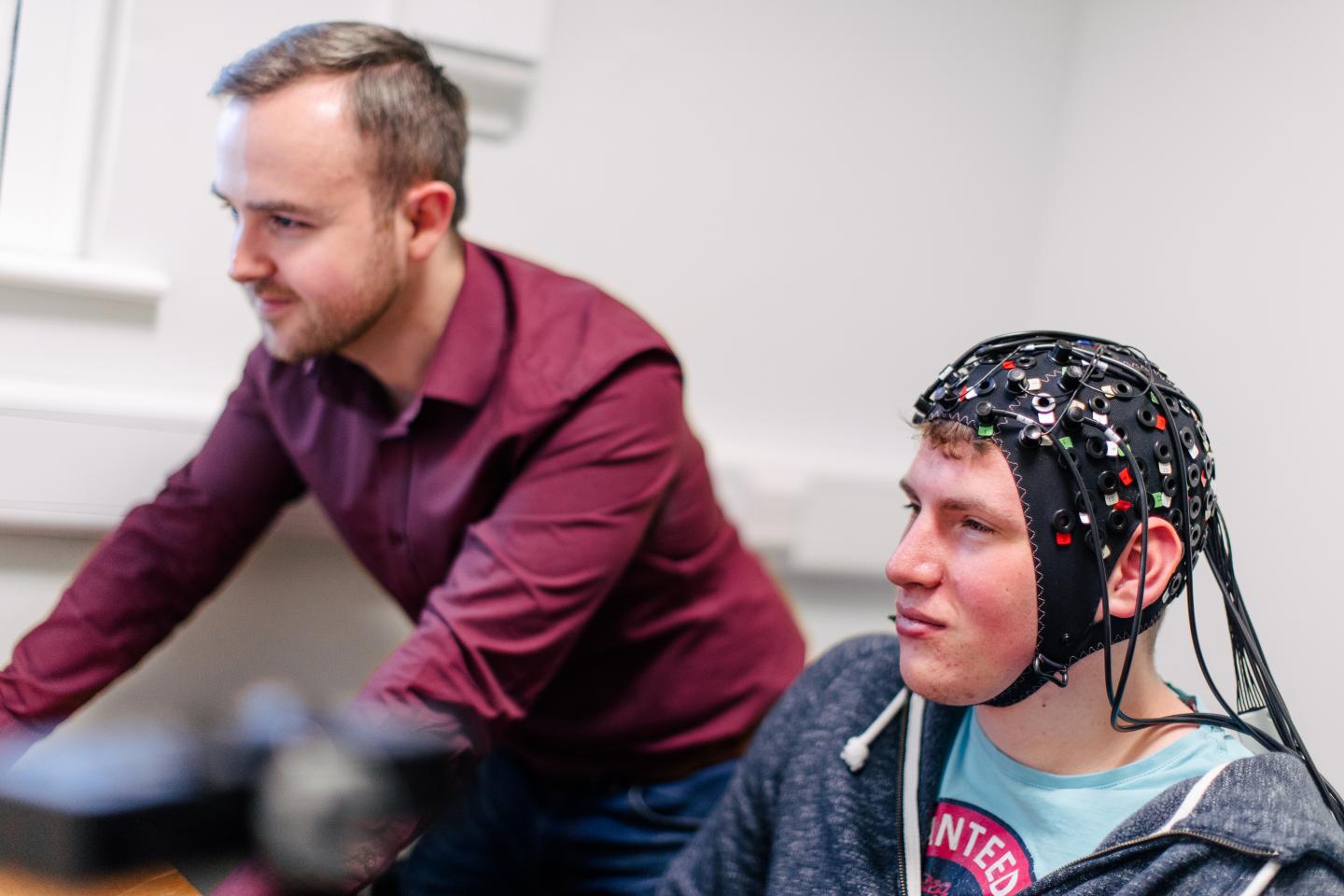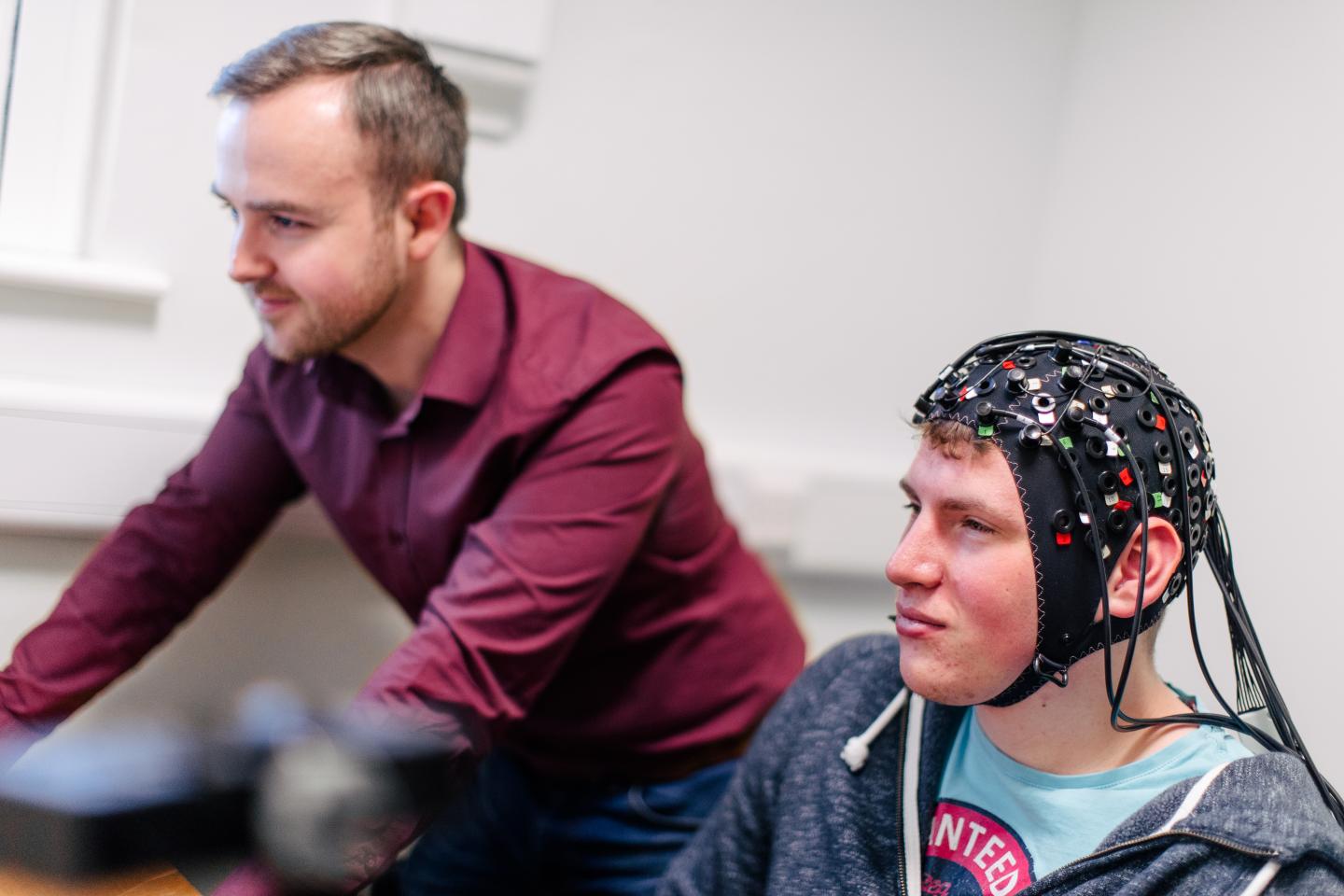
Credit: University of Chichester
- Research explores prospective memory which reminds you to take action in the future
- Poor prospective memory can be an early indicator of Alzheimer's disease
- Prospective memory may be improved via 'acting out' scenarios
- Improved prospective memory supports safer, independent living
Have you ever been shopping and returned home to find that you have forgotten to buy the very item you went shopping for? Have you known it was going to rain yet left your umbrella at home? Have you gone out and left the television on?
All these instances are examples where prospective memory has failed – you have not remembered to take the action you had planned. While these examples are comparatively trivial, poor prospective memory can have serious consequences – forgetting to take medication, or leaving the stove on, for example.
A failing prospective memory can be an early sign of Alzheimer's disease, according to University of Chichester psychologists, and new therapeutic methods are being used to utilise levels of prospective memory as a means to accurately diagnose diseases of cognitive impairment. Such methods can be effective non-invasive alternatives to traditional clinical methods such as the extraction of cerebral spinal fluid.
In research published in the journal "Neuropsychology", a team led by the University of Chichester has studied prospective memory performance of 96 participants including patients with mild cognitive impairment aged 64 to 87 years, healthy older adults aged 62 to 84 years and younger adults aged 18 to 22 years.
The study, which also included members from Radboud University Nijmegen, Sussex Partnership NHS Foundation Trust and the University of Lisbon, looked at prospective memory performance before the introduction of an enhancement technique and compared it with performance after the enhancement technique. The technique used was encoded enactment, where subjects were encouraged to act through the activity they must remember to do.
All age groups reported improvement in prospective memory, but it was particularly marked in those older subjects with mild cognitive impairment, that is, potentially in the early stages of Alzheimer's disease. The study suggests that encouraging people in this category to adopt enactment as a means to enhance prospective memory could result in them leading independent, autonomous lives for longer
Leading the study was Dr Antonina Pereira from the University of Chichester. She said: "Poor prospective memory can range from the vaguely annoying to life threatening, depending on the circumstances. We wanted to confirm two things – that prospective memory deteriorates with age and that enactment techniques might support those with a poor prospective memory."
She added: "We did indeed find that prospective memory erodes as we get older, and our early findings in this little researched area would suggest that enactment techniques are effective in improving prospective memory. We were heartened to see that there was improvement in our group with mild cognitive impairment. Enactment techniques offer the potential for a cost-effective and widely applicable method that can support independent living. This contributes to an individual's health, well-being and social relationships while reducing the burden of care."
Antonina's tip for overcoming poor prospective memory
"The next time you would like to remember to pick up a pint of milk from the store on your way home, do not wait until you have got home to realise you have forgotten to do it. Instead, recreate the action you would like to remember, pretending that you are actually doing it, in as much vivid detail as possible. This might feel awkward to begin with, but it has been identified as an optimal technique to enhance prospective memory. It can have very long lasting effects and work even for people with cognitive impairment. Acting is the key."
###
[Peer reviewed, experimental study involving people]
475 WORDS
Notes to editors
Dr Antonina Pereira, Reader in Psychology (Research Methods, Cognition and Neuroscience) at the University of Chichester's department of Psychology and counselling.
[Research paper] "Sustaining Prospective Memory Functioning in Amnestic Mild Cognitive Impairment: A Lifespan Approach to the Critical Role of Encoding"
By Antonina Pereira, Mareike Altgassen, Lesley Atchinson, Alexandre de Mendonça, Judi Ellis
Media Contact
James Haigh
[email protected]
44-124-381-6495
@chiuni
http://www.chi.ac.uk
Original Source
https://www.chi.ac.uk/news/new-university-study-shows-acting-key-remembering-tasks http://dx.doi.org/10.1037/neu0000441





